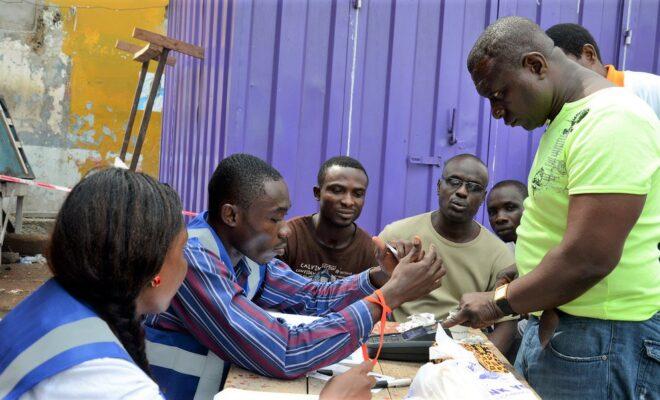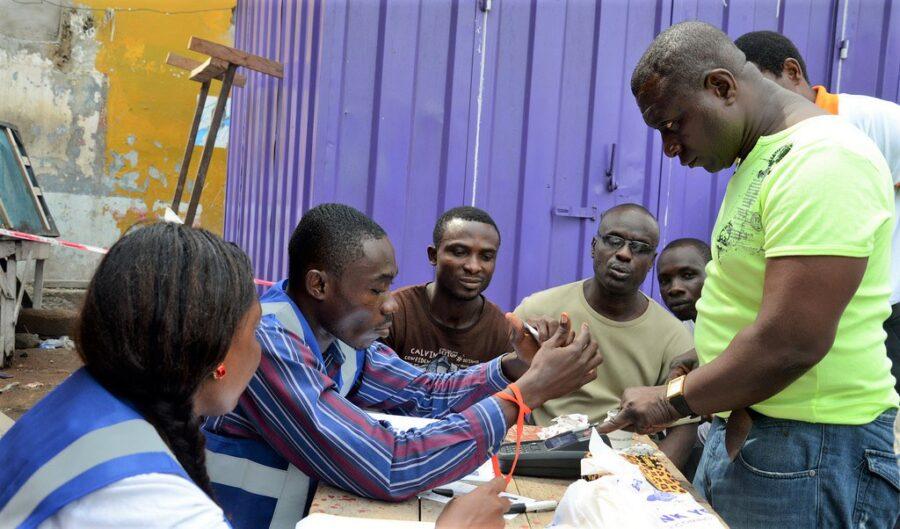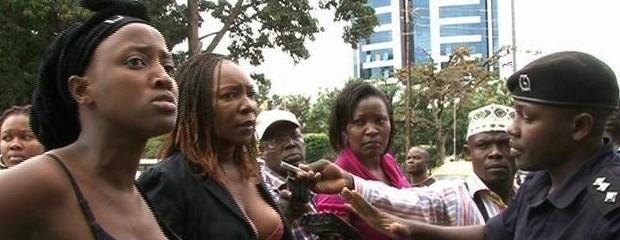Running an election during a pandemic: Lessons from Ghana

Ghana’s election was not perfect but didn’t lead to a large rise in COVID-19 cases. What can we learn from its experience?

Ghana has held several successful elections but never under the conditions of a pandemic. Credit: Commonwealth Secretariat.
Ghana is widely seen as a model of electoral democracy in Africa. It has managed multiple elections which have led to multiple handovers of power. Contests are highly competitive, electoral decision-making processes are largely participatory, and voter turnout is relatively high. When there have been instances of electoral violence, concerns around irregularities, and disputes over results, they have been well managed.
However, Ghana’s general elections of December 2020 were organised under completely novel conditions. The COVID-19 pandemic posed a threat throughout the campaign period and on voting day itself. Many feared the disease might lead to the election’s postponement or that electoral activities might create the conditions for a major outbreak. In the end, neither fear was realised. Though mistakes were made, the election went ahead smoothly and without leading to a large rise in cases. What lessons can we learn from Ghana’s experience?
Voter mobility creates risks
Ahead of the election, Ghana conducted a fresh voter registration exercise. The electoral commission attempted to limit infection risks associated with this activity. It conducted a two-day nationwide pilot to test the effectiveness of registration kits and compliance with COVID-19 measures in preparation. And during the process itself, it introduced registration chits and a digital queue management system in response to reports of overcrowding.
These efforts likely helped reduce the likelihood of infections. However, the fact that the exercise required millions of people to travel to registration centres – some travelling long distances to do so – significantly increased the risks of outbreaks. Between 30 June and 9 August 2020, 17 million people – up from 15.7 million in 2016 – visited official centres to register. This may well have contributed to the seven-day average of new COVID cases in Ghana surging from 453 at the start of July to 782 by the end of July.
While electoral officers may have been able to enforce COVID protocols at registration centres, the transmission risks created by requiring millions of people to move around the country can hardly be contained.
Impartial institutions must enforce rules
Political rallies, which are typically a big feature of Ghanaian elections, were banned along with other large public gatherings in 2020. Political parties therefore adopted alternate approaches to getting their messages to voters such as door-to-door campaigning and health walks. Nonetheless, high-profile politicians – such as the presidential and vice-presidential candidates – continued to pull large crowds that generally disregarded health protocols. The enforcement of COVID rules was weak partly because it was party officials that superintended campaigns, rather than state health officials.
If COVID measures are to be impartially enforced during elections, it is essential that independent institutions oversee them to avoid politicisation. This consistency would also go a long way to ensuring public trust in the government’s own messaging around the importance of health measures.
Consistency and communication are key
In Ghana, the enforcement of wearing facemasks, handwashing, and physical distancing declined barely a month after its first COVID-19 case was recorded. By the time of the election, these measures were noticeably absent as people queued and gathered.
On polling day, the electoral commission ensured that most polling centres had handwashing facilities, temperature guns, and sanitiser. The wearing of facemasks and social distancing was largely enforced with the help of security officials. However, contact between voters and election officials, the handling of voting materials, and the use of biometric verification devices without routine cleaning presented risks of COVID transmission.
To keep the public alert to the dangers of the virus and risks of outbreaks, it is important that public education from the media and civil society is consistent, continuous, and sustained. A holistic approach to voter education – that incorporates health, civic education and voting procedures – can help voters and polling officials know what to do at every step of the process. Electoral officials must also be reasonably funded to procure the necessary equipment to reduce risks and adopt measures that can reduce overcrowding.
The UKRI GCRF/Newton Fund African Elections during the COVID-19 Pandemic project has been following elections in Tanzania, Ghana, and the Central African Republic. It focuses on how the risks of COVID-19 transmission have been mitigated and how the pandemic affects political participation.





